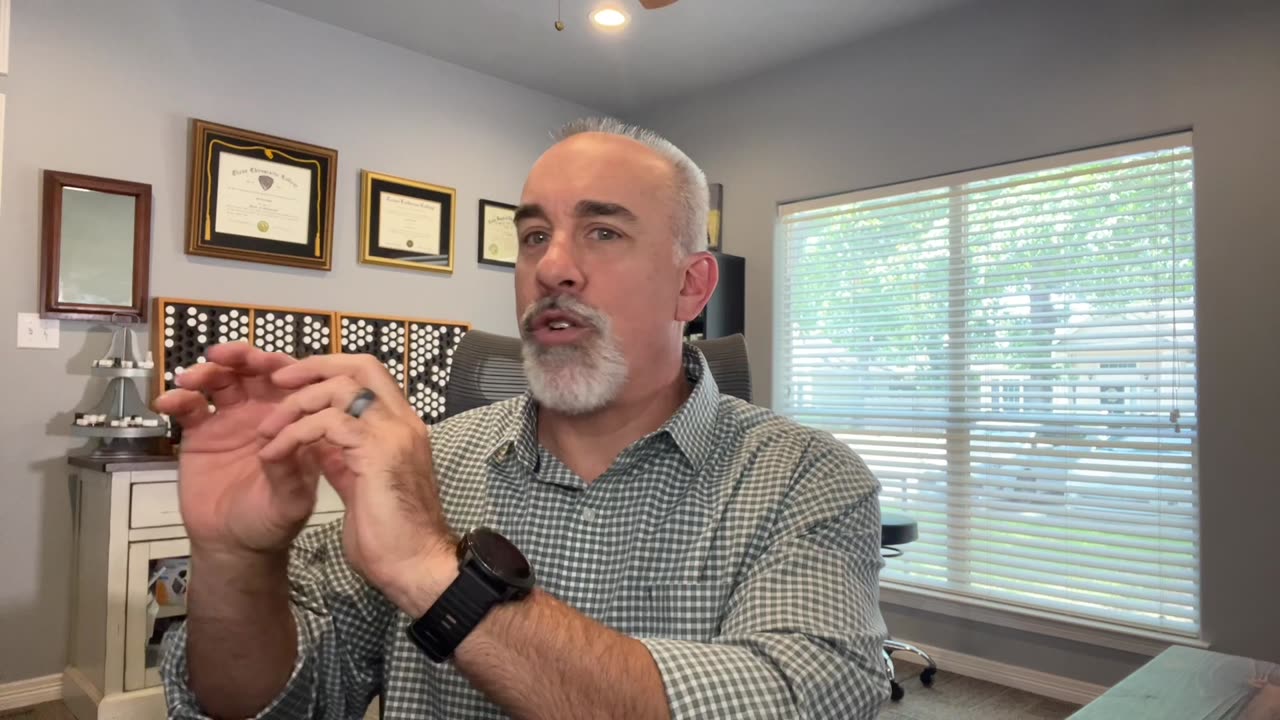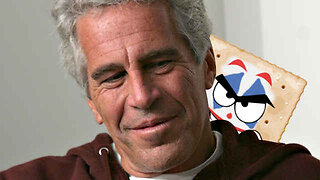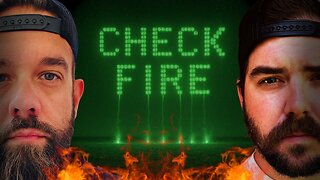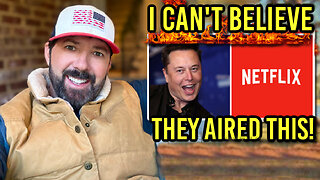Premium Only Content

Are all low carb diets the same?
Patrick Krupka, DC, CFMP discusses the similarities of most of the most popular low carb diets and why this same purpose keeps coming up again and again.
Patrick Krupka, DC, CFMP:
So you can't really go anywhere without hearing somebody talking about a low carbohydrate diet. There's whole 30, keto, low-carb paleo, diets that prioritize protein, fasting mimicking diets, fasting, intermittent fasting, keto, carnivore. We could go on all day with different diets that accentuate protein, or in the case of keto, protein and fat, at the expense of carbohydrate. I don't have a big issue with that. I think in many people, that's beneficial. But I want you to understand that whichever one of those you choose or whichever one of those is recommended to you or whatever, they all share a very common goal, a very similar goal. They go about it a little bit differently, but the goal is to expose you to a lot less insulin than you've been doing already. So I'm going to talk you through real briefly two or three different things to explain what insulin does and how it becomes a problem because we need it.
Why would you want less of it? So we're going to talk about that and then an overview of how the system works and what the diets do. So think of going to a loud concert. At some point in your life you've been to a loud concert or a very noisy place. So when you leave that noisy place, you realize, "Oh my gosh, my mom was right. I'm going deaf. I can't hear very well." But if you spend some time in a quiet environment, your ears will kind of reset and you can hear normally again. Your ears decreased their sensitivity to sound as a protective mechanism because they were being bombarded with so much noise. So they kind of turned down their sensitivity. It protects them. When you get out of that environment, you're in a quiet environment, it allows that sensitivity to return to normal and you hear normally again. That's a very common mechanism in our physiology.
We do it with excess hormones and all kinds of stuff. I'm not going to go through the list, but it works that way with insulin as well. So there are times where people will consume diets for a prolonged period of time that require large amounts of insulin. That's the loud concert. That insulin is constantly bombarding the cells. So let's say I was to drink a Coke or eat a Snickers or have a donut or something that provides a large load of sugar in a short period of time. My blood sugar is going to go up significantly. Now in response to that, my body says, "That's too high. Not supposed to be like that." So my pancreas makes insulin, throws it into the bloodstream. It takes a bunch of that excess blood sugar and shoves it into some cells as storage. We all know what the storage is. But it shoves it into the cells for storage, and that brings our blood sugar back down.
That's the way it's supposed to work, except it's not supposed to spike that high. We're not supposed to have foods that do that to us. If you went back before we started processing our foods, you'd have honey, maple syrup, and maybe some of the fruits that were fairly sugary. Maybe some tubers, carrots and beets had some sugar in them, but there weren't things that delivered the load of sugar that we get now from processed sugars like high fructose corn syrup and soft drinks and things like that. Anyway, so that's the way the system's supposed to work. But if that happens all the time, now you're at the loud concert. You eat something, your blood sugar goes up, you make the insulin dump it into the system, and it tells the cells, "Hey, take this sugar. I'm clearing this out of the blood, and the cells say, "Man, I think I've had enough. I'm not listening today. I'm not going to take the blood sugar. Thanks, but no thanks."
And so your body says, "Well, wait a minute. I don't have an option to leave it in the bloodstream. That's not acceptable. I'll just make twice as much insulin and force the cells to take it." Well, the cells get wise to that, and the next time this comes around, they pack extra cotton in their ears, and now you've got to make three times the normal amount of insulin. So they put on earmuffs on top of the cotton. Now you've got to make four times the normal amount of insulin. It's this battle between wanting to clear the sugar out of the blood, and the cells saying, "Look, I've had all I can take. Don't give me any more of that." "But it has to come out of the bloodstream." "But I can't take anymore."
"But it has to come out of the bloodstream." And here's the argument going on. So the insulin level starts to go up to force the cells to take it while they're trying to protect themselves. That's insulin resistance. If that goes on long enough, you can't make enough or the cells can't take enough to control the blood sugar, and the blood sugar starts to go up. Now, your markers like hemoglobin A1C and fasting blood sugar are going to start to go up and everybody realizes you've got a problem. That's the mechanism. If you go for a period of time where you make almost no insulin, those cells have time to process the blood sugar they've taken, to deal with the storage issues, to start to normalize, and they haven't heard insulin for a while. Once you go for a couple of weeks like that, they start looking around like, "Hey, I was avoiding this stuff, but now I'm not seeing it at all. Maybe I'm missing something. I'm a little bit more capable of taking some blood sugar now. Maybe I should start listening."
And they start taking the cotton out of the ears and taking the earmuffs off. So they're now monitoring the system to see if there's any insulin floating around. You're returning back to a more normal insulin sensitivity because you've avoided having insulin in the system for a while, or at least not at the amounts that had the loud concert effect. So as an overview, the reason the low-carb diets or keto or fasting or any of that really are beneficial for people is because you've spent some time with the pendulum over here with the high blood sugar, the high insulin. The cells can't handle it. Everybody's arguing with each other. Think of overusing a credit card. You're maxed out and you're still trying to charge on it.
You need to spend some time on this side of the pendulum where there's no insulin being produced and there's no blood sugar issue to deal with, and the cells can start to process what they've had. They become receptive to insulin again. Your insulin levels drop. You can start pulling out of storage instead of just putting into storage, because that's the goal, to pull out of storage. So once the pendulum has been here long enough to pay off the balance on the credit card, then you can bring it back to the middle and live in moderation. It's not the goal to live there. The goal is to live in moderation, but you've spent so much time charging up the credit card, you've got to spend some time paying off the credit card before you can just have an empty credit card sitting in your pocket and use it once in a while and pay it off at the end of every month.
If you just go from overcharging on it to paying what you're charging each month, you still have that big balance earning interest. You've got to spend some time over here first. Blood sugar and insulin resistance are not all that different. So what the low-carb diets get you, low sugar, low-carb fasting, whatever, it's a opportunity to spend some time dealing with all of that storage and all of the ramifications of that without adding to that. Without showing those cells any more insulin. Without forcing them to take any more sugar. They just get to quietly process what they've already got. And then, without that insulin level being so elevated... And I've done other videos on insulin and fat loss. Without that insulin being so elevated when you exercise, you actually have an opportunity to pull some calories out of storage and use that fuel during your exercise.
If your insulin levels are high enough and everything is still going towards storage, you can't pull out of storage at the same time. It makes you very resistant to burning off body fat. So that part of it's a little bit of a different discussion, but the goal of the low carbohydrate diets, whichever one you choose, is to exist with very little insulin long and enough that the whole system resets itself just like your ears would reset themselves after the loud concert. So I hope the analogies didn't confuse you. I hope that made some sense, but I wanted to talk to you a little bit about all the different low-carb diets that are out there.
And when you're choosing between them, it's probably more important to just pick one that fits your lifestyle that you feel like you can have some success with. The common goal of all of them is to be on this side of the pendulum for a period of time where you are not making much insulin. So I hope that made sense to you. If you have questions, let me know. If you hear this and think, "Oh my God, I didn't know that. Who does this?" Call the office or find a functional medicine doctor near you. It's a big part of what we do on a regular basis. All right, hope you have a great afternoon.
-
 2:18:47
2:18:47
TheSaltyCracker
5 hours agoDem's Epstein Drop Backfires ReeEEStream 11-12-25
76.9K178 -
 17:08
17:08
Demons Row
5 hours ago $2.12 earnedMost Dangerous Motorcycle Clubs That Ever Existed 💀🔥
21.2K2 -
 12:51
12:51
The Gun Collective
6 hours agoWOW! -- LOTS of new GUNS just came out!
11.3K10 -
 2:06:53
2:06:53
I_Came_With_Fire_Podcast
13 hours agoWhat IS America First | Al Qaeda in the White House | China's Spy Highway
9.9K1 -
 1:46:55
1:46:55
Adam Does Movies
8 hours ago $0.49 earnedTalking Movies + Ask Me Anything - LIVE
7.61K -
 1:30:33
1:30:33
Glenn Greenwald
7 hours agoMAGA Outrage Over Trump's Plan for More H-1B Visas: With Prof. Ron Hira; Latest Epstein/Israel Revelations and Newly Released Emails: With Drop Site's Murtaza Hussain | SYSTEM UPDATE #546
124K40 -
 3:39:09
3:39:09
Barry Cunningham
7 hours agoBREAKING: PRESIDENT TRUMP DINNER | GOVERNMENT SHUTDOWN VOTE | MAHA SUMMIT WITH RFKJR & JD VANCE!
46.6K38 -
 5:23
5:23
Buddy Brown
10 hours ago $2.57 earnedElon, Out Here Doin the LORD'S WORK! | Buddy Brown
19.5K7 -
 1:01:44
1:01:44
BonginoReport
7 hours agoWhat Do Newly Released Epstein Emails Prove? - Nightly Scroll w/ Hayley Caronia (Ep.176)
140K58 -
 13:09:22
13:09:22
LFA TV
1 day agoLIVE & BREAKING NEWS! | WEDNESDAY 11/12/25
219K46